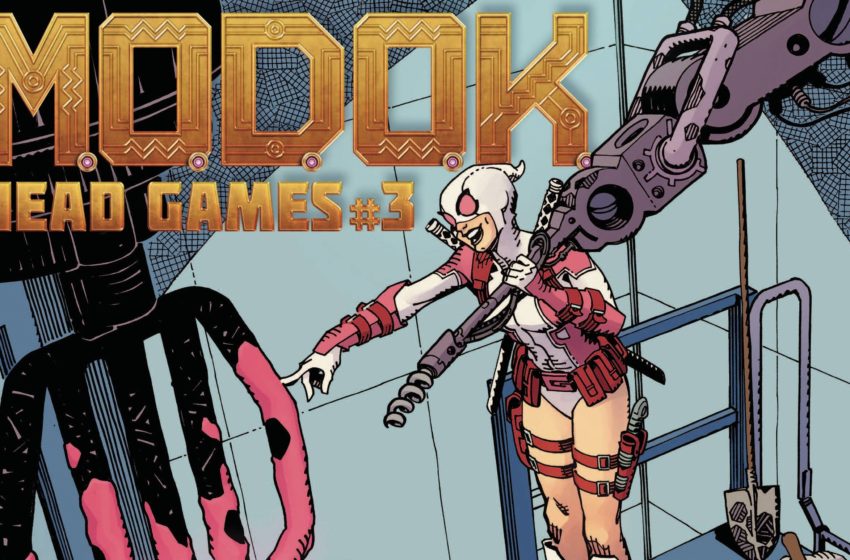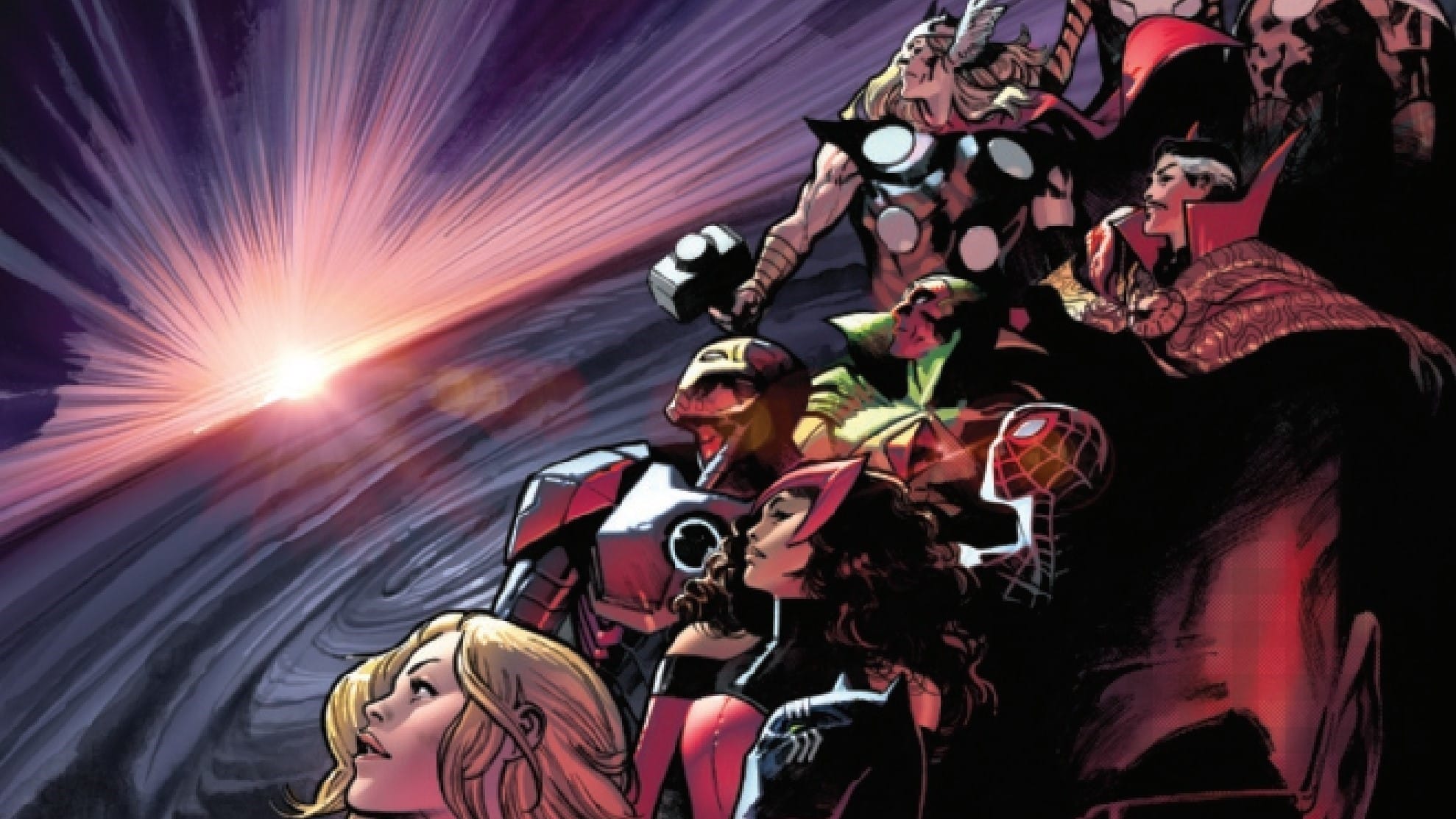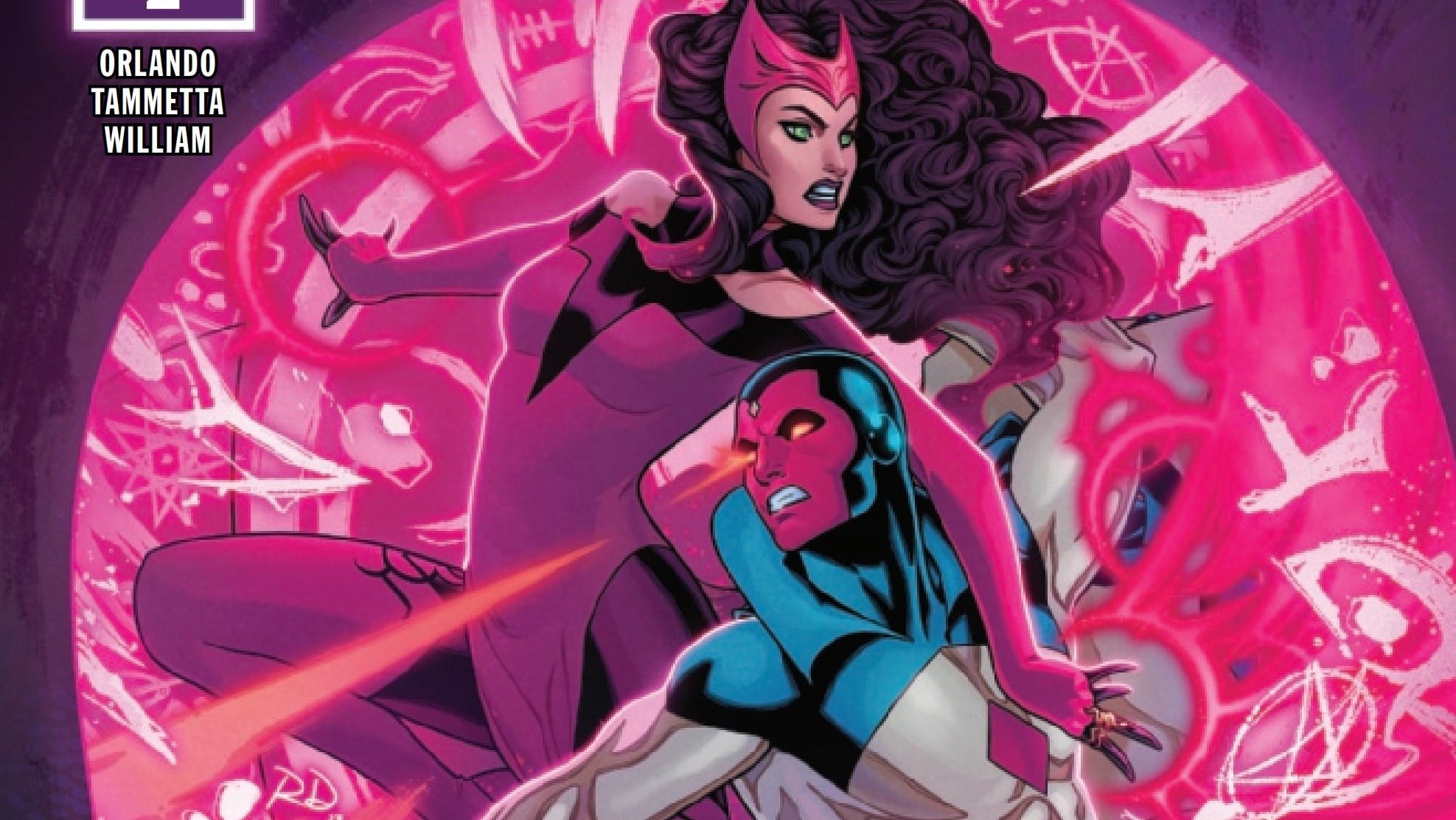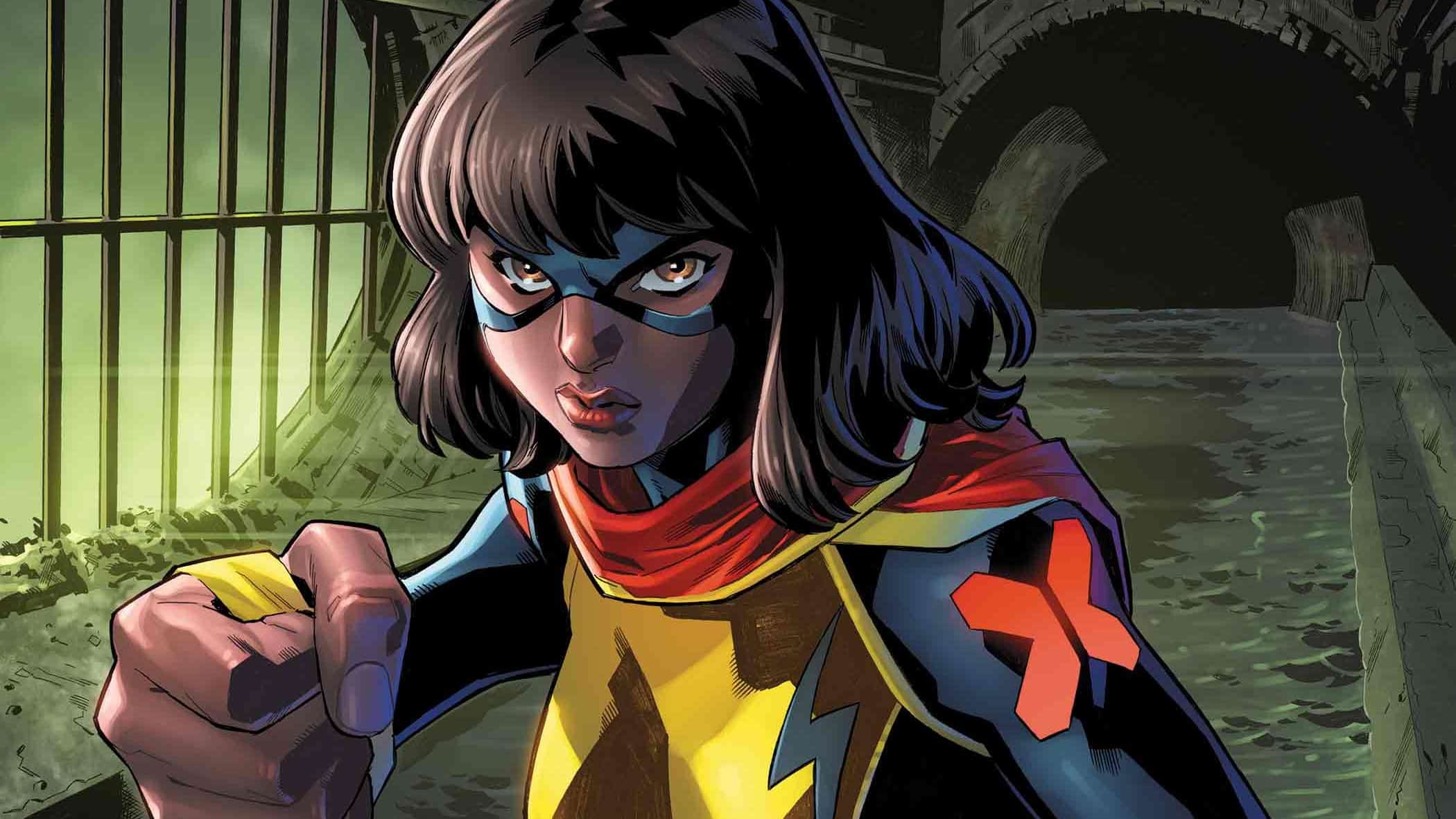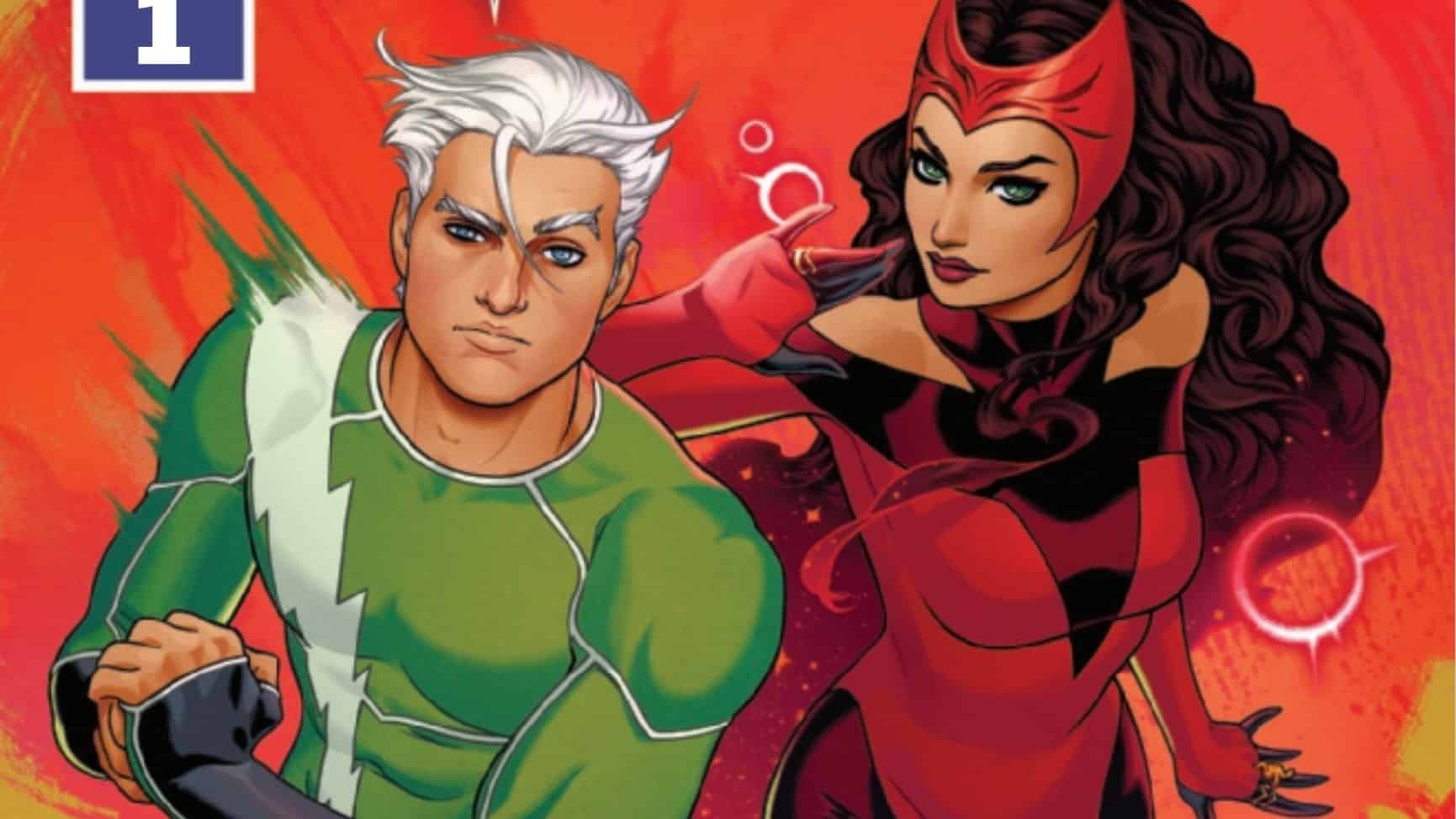M.O.D.O.K. makes a significant discovery on his quest to understand his own memories with the help of Marvel’s Most Meta Mutant, the unbelievable Gwenpool, in M.O.D.O.K. Head Games #3, written by Jordan Blum and Patton Oswalt, with art by Scott Hepburn, colors by Carlos Lopez, and letters by Travis Lanham.
Head Games #1 and 2 were fun romps that established the premise of the series— M.O.D.O.K. must discover the source of memories he can’t reconcile. #3 begins to much more firmly arrive at the broader goals which Jordan Blum has discussed in interviews: “taking that Grant Morrison Batman approach” to the character, which is to say 1. establishing that each previous approach, no matter how distinct, in a character’s entire wide-ranging canon, is valid, and 2. establishing that the character as a whole still coheres when this whole mess is accepted. In Batman, it was an approach that highlighted both the mythic, archetypal aspects of the character as well as the character’s importance to our culture over the past century.
Applying this mythic Morrisonian method to M.O.D.O.K., the giant head that murders people, is deeply funny. But it’s also clever. Using Morrison’s extremely serious approach to examine something silly isn’t just burlesque comedy. It demonstrates the riches of a shared continuity, if this approach works even with the giant head that murders people. But the creative team here has a limitation that Morrison did not have to contend with: instead of years of issues, they have a mini-series. They need to be much more direct.
This is accomplished in part by the premise of the series, which makes the approach literal— M.O.D.O.K. has to understand, contend with, and reconcile other versions of his own character. But this issue, moreso than the previous two, is able to foreground the meta-reflective nature of the story (and yes, I really apologize for writing a phrase as pretentious as “meta-reflective nature of the story” in a piece about the Mental Organism Designed Only for Killing) by bringing in the one element of the modern Marvel universe best suited to tackling this stuff: The Unbelievable Gwenpool.
Gwenpool starred in the most recent series to prominently feature M.O.D.O.K., so her appearance here is natural— but more than that, Gwen is a character defined by her relationship with fiction and reality. She’s the perfect character to help lead M.O.D.O.K. to the next step in discovering which of his memories are real. And like Morrison themself, (or like Morrison’s claims about themself), Gwen is a character who entered a fiction from her own world.
And with all that set-up, I think we can finally get to what I actually wanted to talk about in this issue. M.O.D.O.K.: Head Games is Morrisonian, but it’s not just a Morrison tribute, or retread, pastiche, spoof, etc etc. Gwendolyn Poole’s story doesn’t work like Morrison’s meta-fictional stories. She isn’t a thought experiment about putting on a fiction suit. Her stories aren’t about entering the comic book world— they’re about the life lived after that. She isn’t Grant Morrison— she’s what comes next. Chris Hastings, Gurihiru, Leah Williams, David Baldeon, and now (to a lesser degree in this one guest appearance) Jordan Blum, Patton Oswalt, and Scott Hepburn have contributed to a character that can only exist post-Morrison, with stories that are very much post-Morrison.
Remember Ultra Comics? You, the reader, are a villain who, possessed by an idea, aid the antagonist of the series by reading the comic, by turning each page. Your eye and your hand feature in the story. Now, this only asks the reader to approach the comic as they would normally, and then includes that behavior in the plot of the comic. This isn’t that far from Deadpool breaking the fourth wall and chatting with the reader; it’s an entirely passive activity. This comic asks you to destroy part of it. And of course, you probably won’t— but in the canon of the comic, you do. In the canon of the Marvel universe, M.O.D.O.K.’s story only advances at this point because readers in the world where his story is a comic have chopped up that comic. This is the kind of stuff that Gwenpool is ideal for; she isn’t just another Deadpool that breaks the fourth wall by talking to the reader. She’s the character that you can create after a generation of readers and creators have grown comfortable with a Deadpool (and with a Grant Morrison).
All this postmoderny, break-the-fourth-wall, metafictional stuff used to be things that could only create distance, stories that called attention to themselves as stories, that broke immersion, that made you stop caring about the characters for a second and think about how artificial they are. But that’s not true for readers and creators who grew up with all of this. For these people, metafictional stories don’t need to be distant, and metafictional characters don’t need to be approached with irony. These stories can be immersive, and these characters can be sincere.
And this is my real point. I don’t think that the creative team behind this issue sat down and thought about postmodernism and Grant Morrison and Ultra Comics. I don’t think they sat down to write a thesis of the above. They wanted to create a delightful, fun, and funny little story about one of Marvel’s goofiest characters. And they succeeded. M.O.D.O.K.: Head Games is the most hilarious Marvel comic in years.
It’s not a thesis about comics. It’s a sign of where comics are. Even the goofy comedy about the Giant Head That Murders People can carry forward the best ideas of giants of the last generation, like Morrison, and they can have a damn good time doing it.
Robert Secundus is an amateur-angelologist-for-hire.

